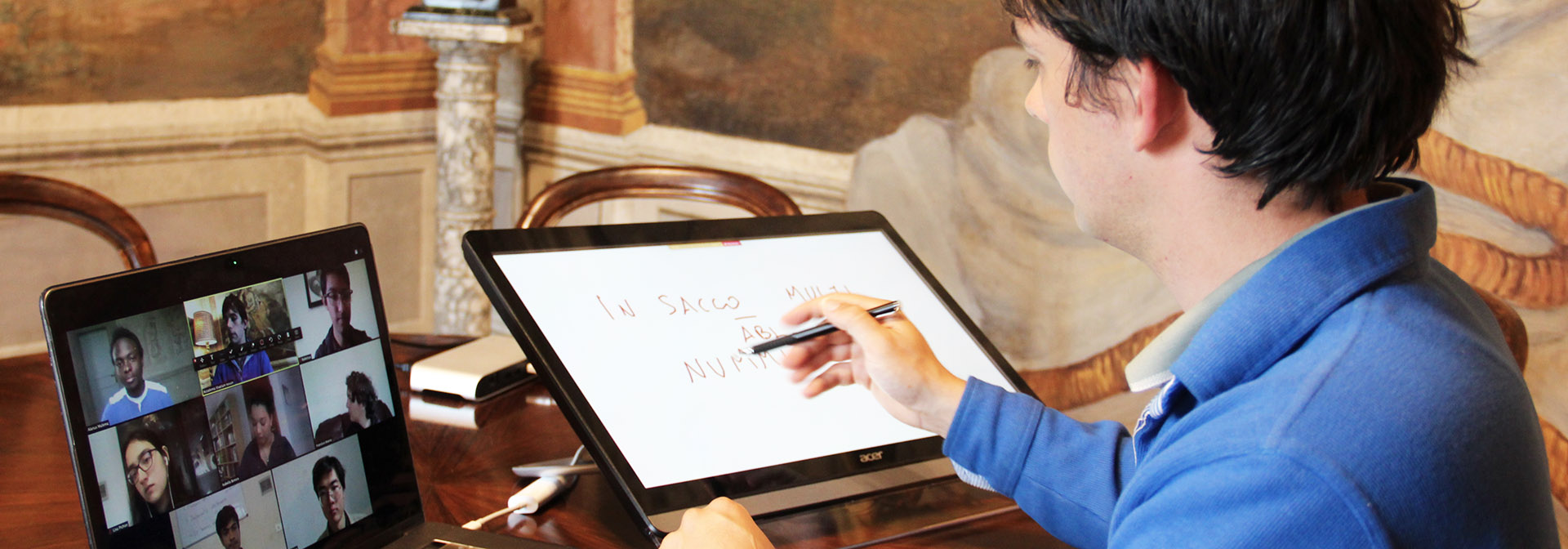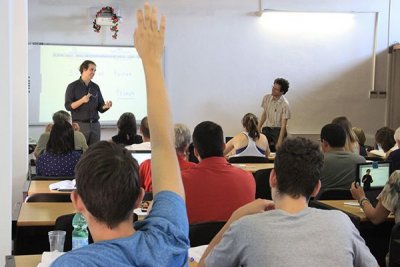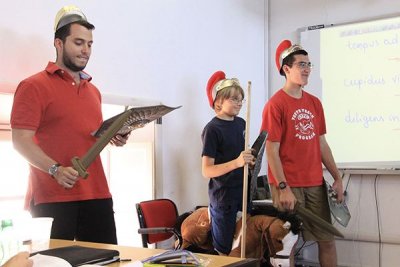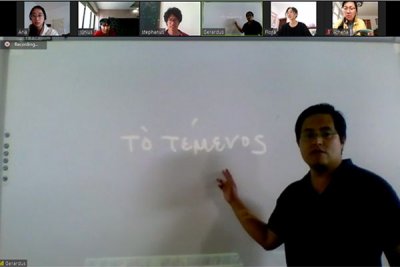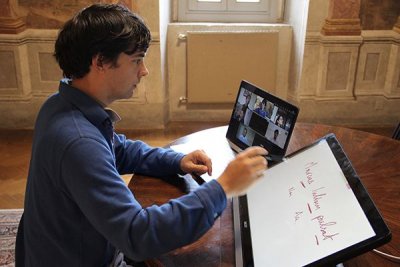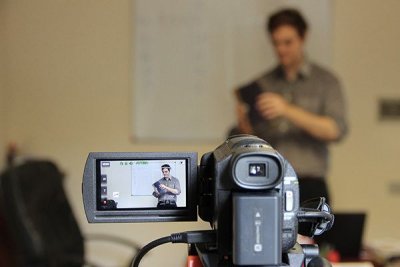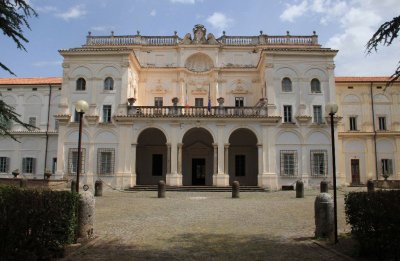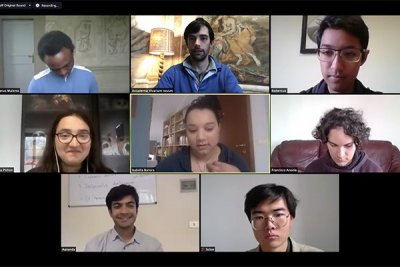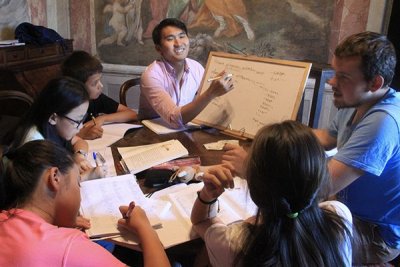1. The method of the Vivarium Novum: A brief history
During the 1980s a group of young classicists in Southern Italy began to gather around an old teacher and discuss the necessity of renovating the didactics of the classical languages. Young people from schools and universities from all over the world came to join them to spend years studying Latin and Greek - two languages that hardly anyone in our times manages to completely master. From the discussions held during that time the need to analyze the course of history and the art of teaching Latin arose: How did the Humanists learn this language? How did Politian, Erasmus, Vives, and Comenius teach? For this research, the students analyzed the most effective methods of modern language teaching: How was it possible that a parliamentary interpreter of Finno - Ugric languages could learn to perfectly read, write, and speak Hungarian in a relatively short period of time, but a high school student, after four or five years of study, could not comprehend even the simplest of Latin texts without the aid of dictionaries and grammar books, and without having to laboriously translate the language into his own? And yet students had four or even five hours of lessons a week, dedicating at least as much time to individual study.
The Academy Vivarium Novum has acquired a worldwide fame throughout the last decade for having studied, identified, and introduced methods for teaching Latin and Greek which may remedy this situation. It has held international conventions concerning the topic from 1991 to the present day, with the participation of the greatest experts on earth, leading to the contextual-inductive method for teaching classical languages to being diffused in Italy and revitalized in Europe as well as the United States. It has founded an international school to which students have poured in from every continent, where they acquire a full and total command of the Latin language within a very short timespan.
Since 2011 the Academy has put its competency, acquired through years of research and teaching, at the service of those who wish to learn Latin with effective results and need to do so in a rather short period of time. The course utilizes specific teaching techniques, from induction according to the natural method to the Total Physical Response, from "suggestopedia" to storytelling as well as the Rassias Method. Through active use of the language - daily conversations and writing exercises - students may experience the method of teaching employed in the Humanistic schools during the Renaissance. This mixed approach, tested for years by the experts of the Academy, allows students to attain in only eight weeks the same results that would elsewhere require up to three years of study.
In 2020 the Academy introduced the first online intensive course for Latin and Greek. Due to the success of such classes, we have been continuing to organize distance learning courses - through summer, and through the Academic year. Each term, we have certain modules for beginners of Latin and Greek, and others for more advanced students of Latin literature and composition. During the summer term, the modules are more intensive, with daily classes and tutoring sessions; while the spring term propose the same modules in a more extended period of time, i.e two weekly classes for three months. Moreover, since we are convinced that the humanities should be cultivated through direct contact and communication, we created the Otia Tusculana and allowed the participants of the on-line program to meet on the campus of our Academy, and to culminate their instruction with a shared experience of the Classical languages and the cultural treasures that they hold.
Now, after refining our on-line methodologies, and being finally able to restart our on-campus summer lessons, we have decided to arrange all these courses in a unified program that joins distance learning and on-campus lessons systematically, and offers the possibility to combine a variety of options in the way that better suits the necessities of each student. All the available options can be consulted here.
The courses are open to students of every nationality, gender and age. To be able to read Latin texts fluently is a skill that not only those who study classical literature need, but also those who study Medieval and Modern history, European literary history, law, philosophy, the history of science, theology, and liturgy.
2. Modules:
All courses provide immersive teaching in Latin or Greek.
In addition to classes, students of modules 1, 2 and 3 of Latin and Greek languages will have access to a portal specially designed for each course with multimedia exercises and additional supplementary content. Teachers will have access to the results of students’ completed exercises in order to monitor their progress and help them to overcome any difficulties they might have.
Classes of about 20-30 students will regularly take place through Zoom. Students will also have additional meetings with tutors in smaller groups of about 5-10 in which they will have the opportunity to complete additional exercises, practice conversing in Latin and Greek, and ask questions. The times of these tutoring sessions for smaller groups will be decided and announced a few days before the beginning of each course.
Courses will be held only if a minimum of 20 students is reached.
2.1. Latin (part 1)
 Intended for those who have little or no previous knowledge of the Latin language and for teachers who would like to learn (by participating in education in action) techniques for actively teaching the fundamentals of Latin morphology, syntax, and vocabulary in Latin. The students will confront morphology, syntax and vocabulary (1,000 of the most frequent words). Classes will be based on the first 20 chapters of Hans H. Ørberg's book, Familia Romana, and will also preview further aspects of morphology, syntax and vocabulary contained in later chapters.
Intended for those who have little or no previous knowledge of the Latin language and for teachers who would like to learn (by participating in education in action) techniques for actively teaching the fundamentals of Latin morphology, syntax, and vocabulary in Latin. The students will confront morphology, syntax and vocabulary (1,000 of the most frequent words). Classes will be based on the first 20 chapters of Hans H. Ørberg's book, Familia Romana, and will also preview further aspects of morphology, syntax and vocabulary contained in later chapters.
Textbook: H. Ørberg, Lingua Latina per se illustrata: pars I: Familia Romana, Edizioni Accademia Vivarium novum.
Credits: 75 class hours and at least 50 hours of private study; 125 total hours. (5 ECTS)
Price: 800€
ONLINE. Class timing: 15 weeks, 2 hours in class twice every week and an additional hour with a tutor every week. Furthermore, independent daily work of at least 1 hour is recommended.
ONLINE. Class timing: 4 weeks, 2 hours in class every day and an additional hour with a tutor. Furthermore, independent daily work of at least 3 hours is recommended.
2.2. Latin (part 2)
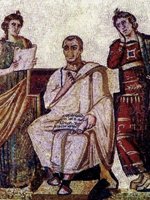 This module is intended only for those students who have already completed Latin I either virtually or by attending one of the Academy's summer classes in previous years, and is designed as a direct continuation of the first module. Students will read through the last 14 chapters of Hans H. Ørberg's textbook, Familia Romana, and thus complete their learning of the fundamental Latin morphology and syntax while also adding a 1000 additional vocabulary words, chosen on frequential basis, to the copia they've already memorized.
This module is intended only for those students who have already completed Latin I either virtually or by attending one of the Academy's summer classes in previous years, and is designed as a direct continuation of the first module. Students will read through the last 14 chapters of Hans H. Ørberg's textbook, Familia Romana, and thus complete their learning of the fundamental Latin morphology and syntax while also adding a 1000 additional vocabulary words, chosen on frequential basis, to the copia they've already memorized.
Textbook: H. Ørberg, Lingua Latina per se illustrata: pars I: Familia Romana, Edizioni Accademia Vivarium novum.
Credits: 75 class hours and at least 50 hours of private study; 125 total hours. (5 ECTS)
Price: 800€
Class timing: 4 weeks, 2 hours in class every day and an additional hour with a tutor. Furthermore, independent daily work of at least 3 hours is recommended.
Class timing: 2 weeks, 4 hours in class every day and 2 additional hours with a tutor. Furthermore, independent daily work of at least 2 hour is recommended.
2.3. Latin (part 3)
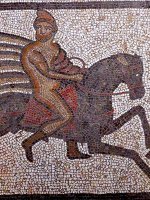 This module is intended for those students who have completed either the first module of the Academy's in-person summer program, or the two parts of beginners' Latin course (part 1 and 2) virtually, or who might even possess an active knowledge of the fundamental notions of Latin grammar and syntax, moreover knowing at least the 1,600 most frequent Latin words as indicated in the lexicon of Besançon; also intended for teachers interested in the teaching of Latin at a more advanced level.
This module is intended for those students who have completed either the first module of the Academy's in-person summer program, or the two parts of beginners' Latin course (part 1 and 2) virtually, or who might even possess an active knowledge of the fundamental notions of Latin grammar and syntax, moreover knowing at least the 1,600 most frequent Latin words as indicated in the lexicon of Besançon; also intended for teachers interested in the teaching of Latin at a more advanced level.
Along with the use of Roma Aeterna as the principal textbook, participants are induced to fluently reading authentic Latin texts of authors such as Cicero, Sallust, Virgil, Horace, Livy and many others.
Textbook:
- H. Ørberg, Lingua Latina per se illustrata: pars II: Roma Aeterna, Edizioni Accademia Vivarium novum.
- H. Ørberg, Sermones Romani, Edizioni Accademia Vivarium novum.
Credits: 75 class hours and at least 50 hours of private study; 125 total hours. (5 ECTS)
Price: 800€
Class timing: 17 weeks, 2 hours in class twice every week. Furthermore, independent daily work of at least 1 hour is recommended.
.
.
.
.
2.4. Greek (part 1)
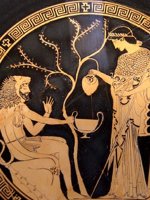 This course aims to help students achieve a firm grasp of the basic elements of Ancient Greek by reading through the first eight chapters of the textbook Athenaze (Italian edition, revised and significantly augmented as compared to the English edition), by reading other texts from various ancient authors, and through the use of the active/inductive method for learning morphology, syntax, and vocabulary.
This course aims to help students achieve a firm grasp of the basic elements of Ancient Greek by reading through the first eight chapters of the textbook Athenaze (Italian edition, revised and significantly augmented as compared to the English edition), by reading other texts from various ancient authors, and through the use of the active/inductive method for learning morphology, syntax, and vocabulary.
This course will cover most of the fundamentals of Greek grammar, such as the article and its uses, nouns (3 declensions), adjectives (first and second class), pronouns (personal, demonstrative, relative and correlative) and the various verb moods and tenses (present indicative, subjunctive, optative, imperative, infinitive, participles of both active and medium-passive voice; the imperfect, future and aorist I, II and III tenses). The course also includes the learning of more than a thousand of the most common words used by the authors of classical literature.
By the end of the course students will be able to read easy Greek texts and express themselves clearly in a simple manner both orally and in writing using the Attic dialect.
Textbook: M. Balme, G. Lawall, L. Miraglia e T. B. Bórri, Athenaze: introduzione al greco antico, volume I, Edizioni Accademia Vivarium novum, Roma 2019.
Credits: 75 class hours and at least 50 hours of private study; 125 total hours. (5 ECTS)
Price: 800€
Class timing: 15 weeks, 2 hours in class twice every week and an additional hour with a tutor every week. Furthermore, independent daily work of at least 1 hour is recommended.
Class timing: 4 weeks, 2 hours in class every day and an additional hour with a tutor. Furthermore, independent daily work of at least 3 hours is recommended.
2.5. Greek (part 2)
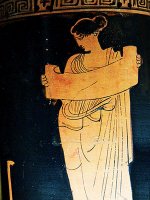 This module is intended for those students who have already completed Greek (part 1), since it is designed as a direct continuation of the first module, or for those who have studied the first ten chapters of the Italian edition of Athenaze and have a firm grasp of the three aorists, future, and imperfect tenses. Students will read continue from chapter 9, while simultaneously reading ancient text of various authors along the way. The extensive use of the active/inductive method for learning morphology, syntax, and vocabulary will help the students complete building their foundation and help them strive towards the classical authors with ease.
This module is intended for those students who have already completed Greek (part 1), since it is designed as a direct continuation of the first module, or for those who have studied the first ten chapters of the Italian edition of Athenaze and have a firm grasp of the three aorists, future, and imperfect tenses. Students will read continue from chapter 9, while simultaneously reading ancient text of various authors along the way. The extensive use of the active/inductive method for learning morphology, syntax, and vocabulary will help the students complete building their foundation and help them strive towards the classical authors with ease.
By the end of the course students will be able to read moderate Greek texts, express themselves clearly both orally and in writing using the Attic dialect, and be able to recognize the various Ancient Greek dialects.
Textbook:
- M. Balme, G. Lawall, L. Miraglia e T. B. Bórri, Athenaze: introduzione al greco antico, volume II, Edizioni Accademia Vivarium novum, Roma 2019
Credits: 75 class hours and at least 50 hours of private study; 125 total hours. (5 ECTS)
Price: 800€
Class timing: 15 weeks, 2 hours in class twice every week and an additional hour with a tutor every week. Furthermore, independent daily work of at least 1 hour is recommended.
Class timing: 4 weeks, 2 hours in class every day and an additional hour with a tutor. Furthermore, independent daily work of at least 3 hours is recommended.
Class timing: 2 weeks, 4 hours in class every day and 2 additional hours with a tutor. Furthermore, independent daily work of at least 2 hour is recommended.
2.6. Greek (part 3)
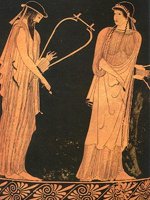 This course is dedicated to people who have finished the second level of Greek thanks to the reading of the first volume of Athenaze (Italian edition, revised and considerably increased compared to the English edition), and some texts of various authors and the use of active and inductive methodologies for learning morphology, syntax and vocabulary.
This course is dedicated to people who have finished the second level of Greek thanks to the reading of the first volume of Athenaze (Italian edition, revised and considerably increased compared to the English edition), and some texts of various authors and the use of active and inductive methodologies for learning morphology, syntax and vocabulary.
In the lessons we will schematically deepen our knowledge of some topics already seen during the first two courses, such as the future tense of the active and middle voice, verbs in -μι in all their tenses, the conjunctive of the three voices and its syntax in the relation of dependence on other verbs and eventuality.
Textbook:
- M. Balme, G. Lawall, L. Miraglia e T. B. Bórri, Athenaze: introduzione al greco antico, volume I, Edizioni Accademia Vivarium novum, Roma 2019.
- M. Balme, G. Lawall, L. Miraglia e T. B. Bórri, Athenaze: introduzione al greco antico, volume II, Edizioni Accademia Vivarium novum, Roma 2019
Credits: 75 class hours and at least 50 hours of private study; 125 total hours. (5 ECTS)
Price: 800€
Class timing: 17 weeks, 2 hours in class twice every week. Furthermore, independent daily work of at least 1 hour is recommended.
.
.
.
.
2.7. Latin Literature
 Intended for those who have already completed the first and second course in a previous year and for others who are proficient Latin speakers and can read Latin authors with ease. Participants will read a variety of Latin texts written in the ancient, medieval and Renaissance period and will complete exercizes in Latin composition, style, and the active use of the language. The aim of this course is a more profound understanding and appreciation of the Latin language and the classical authors.
Intended for those who have already completed the first and second course in a previous year and for others who are proficient Latin speakers and can read Latin authors with ease. Participants will read a variety of Latin texts written in the ancient, medieval and Renaissance period and will complete exercizes in Latin composition, style, and the active use of the language. The aim of this course is a more profound understanding and appreciation of the Latin language and the classical authors.
Class timing: 4 weeks, 2 hours in class thrice every week. Furthermore, independent weekly work of at least 4 hours is recommended.
.
.
.
.
2.8. Otia Tusculana
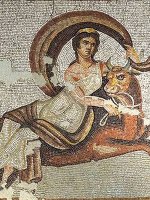
This on-site course is meant to be the final step of the language on-line courses, an opportunity for the students to meet in person and to experience a full immersion in the premises of the Vivarium novum. Therefore, it is mainly open to students who have already attended the first three levels of Latin, but other participants who have good fluency in reading and speaking Latin are also welcome. During this one-week course, students will attend lessons on a wide selection of Latin authors from different ages (ancient, medieval, Renaissance, modern), and will have at least one excursion to a point of interest within Rome or its vicinities. All the activities of the course (lessons, discussions, excursions), as well as interaction between the participants, are strictly in Latin. The program varies each year, so people who already attended once are allowed to repeat (according to space availability).
Credits: 35 class hours and at least 15 hours of private study; 50 total hours. (2 ECTS)
Class timing: 1 week, 6 hours in class every day. Furthermore, independent daily work of at least 2 hour is recommended.
.
.
.
.
2.9. Hellenikai synousiai
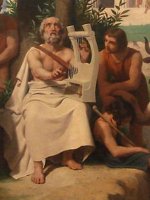
This on-site course is meant to be the final step of the language on-line courses, an opportunity for the students to meet in person and to experience a full immersion in the premises of the Vivarium novum. Therefore, it is mainly open to students who have already attended the first three levels of Ancient Greek, but other participants who have good fluency in reading and speaking Latin are also welcome. During this one-week course, students will attend lessons on a wide selection of Greek authors from different ages (ancient, medieval, Renaissance, modern), and will have at least one excursion to a point of interest within Rome or its vicinities. All the activities of the course (lessons, discussions, excursions), as well as interaction between the participants, are strictly in Ancient Greek. The program varies each year, so people who already attended once are allowed to repeat (according to space availability).
Credits: 35 class hours and at least 15 hours of private study; 50 total hours. (2 ECTS)
Class timing: 1 week, 6 hours in class every day. Furthermore, independent daily work of at least 2 hour is recommended.
.
.
.
.
3. Scholarships
In order to sustain those who have greater difficulties in paying the tuition fees, the Academy Vivarium novum grants several scholarships for participation in the courses. No specific eligibility is required for applying.
We ask all interested parties to fill the application form and send a presentation letter and a curriculum of previous studies along with an ID document to e-longinquo@vivariumnovum.net.
Students will find the deadline for application and the application form on the page of the term they are interested in:
4. Testimonials
- The magazine "The Classical World" called the "fluency" of the Latin students at Vivarium Novum "stunning."
- The periodical "The New Yorker" said the Latin of the Academy's founder "is c lassical in style, modelled on the epistles of Cicero, mixing artfully constructed dependent clauses and colloquialisms” and wrote that “he speaks Latin more fluently than almost anyone else alive."
- Davidson College in North Carolina has described the founder as "the most fluent Latin speaker in today's world."
- The University of London (UCC) has called our method "Probably the best Latin method available": it gives students "a fluent reading ability in the language so that they can enjoy Latin literature in the original with real understanding and appreciation and without being constantly enslaved to dictionaries and grammar books.”
- The journal of the Sociedad Española de Estudios Clásicos "Iris" stressed the "extraordinary command of the Latin language" of the founder of the Academy, with which he "is able to write and express himself with enviable ease and fluency."
- The periodical "The Tablet" wrote that the founder of the Academy speaks Latin "with the eloquence and fluency of a native speaker."
- "Classis", the journal of the Association of Classical and Christian Schools, called the founder "undoubtedly one of the finest Latin instructors in the world today."
- The association "culturaclásica.com" wrote that the students of Vivarium Novum are able to speak "a clear, beautiful, fluent Latin" and express in that language "words that would dazzle any lover of the humanities."
- The Russian magazine "Obrazovanie" wrote that the teachers of the Academy have "an extraordinary expertise in the methods of teaching the Latin language": through Vivarium Novum's didactic techniques "words imprint themselves in the memory with much greater ease, and are retained afterwards considerably better."
 English
English
 Italiano
Italiano
 Latina
Latina

